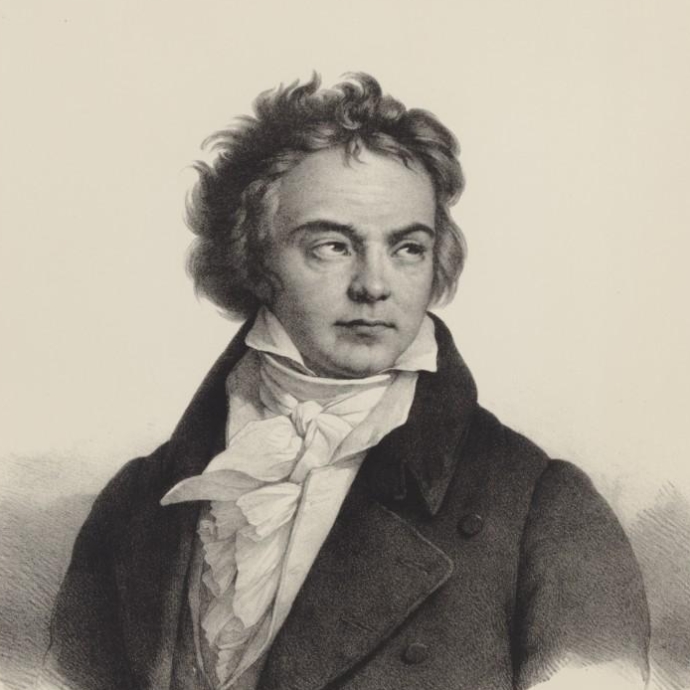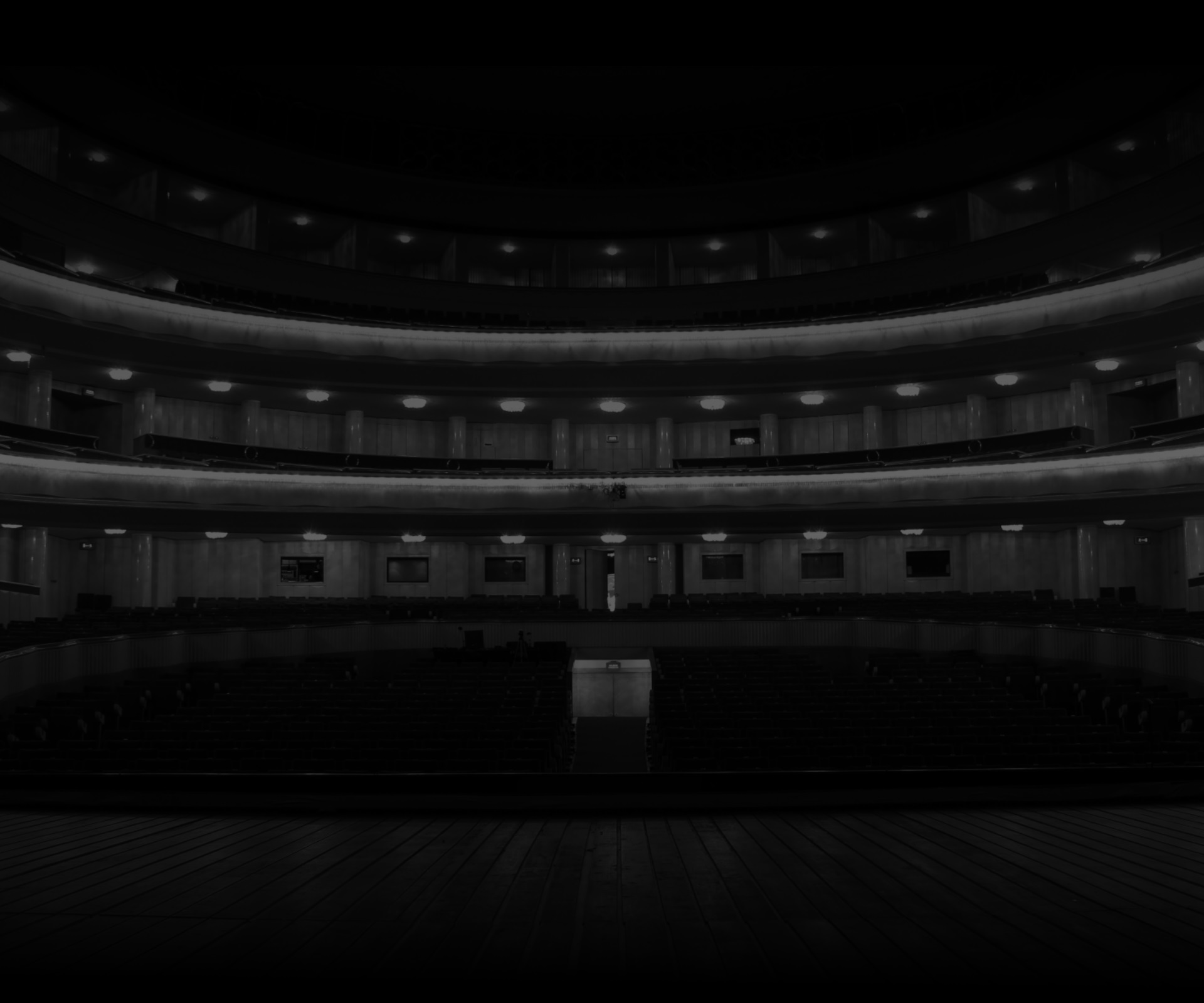
Ludwig van Beethoven (1770–1827) was a composer of German origin, yet is considered one of the three Vienna classics along Joseph Haydn and Wolfgang Amadeus Mozart. Born in Bonn, he displayed musical talents already as a little boy. At seven he began touring as a piano prodigy.
In 1787 he went on a trip to Vienna, where he spent his days getting to know the local music culture. Unfortunately, after two weeks he was forced to return home because of his mother's illness. He managed to see her before she died.
Beethoven moved to Vienna for good in 1792, already enjoying recognition as a piano virtuoso. Soon he won the favour of Vienna's wealthy families, patrons of the arts: the Razumowskis, Lobkowitzes, Lichnowskis.
In 1796–1798, when his composing career began to gain momentum, Beethoven noticed first signs of deafness in himself. To his horror, the disease was progressing, pushing him into a long-lasting phychological crisis. An especially difficult moment came in 1802, when at Heiligenstad (now part of Vienna) he wrote a letter, now known as the Heiligenstadt testament, confessing to recurring suicidal thoughts. Soon the disease was so advanced that Beethoven had to quit playing concerts and focused on composing.
This only added to his fame. In 1803 he received a piano from Erard, the renowned piano maker. At that time Beethoven wrote Symphony No. 3 'Eroica', originally dedicating it to Napoleon Bonaparte.
His most fertile period as a composer was 1804-10. He kept writing afterwards as well, although from 1819 he used conversation notebooks, or Konversationshefte, to communicate with the people around.
He lived the last years of his life as a happy man. In recognition of his achievements the Royal Swedish Academy of Sciences accepted him as a member, while Louis XVIII decorated him with a golden medal for Missa solemnis in D major Op. 123. Soon afterwards Beethoven composed his most popular symphony. Written in 'total silence', Symphony No. 9 in D minor Op. 125 proved a trailblazing piece, giving rise to the genre of vocal symphony.
At the time Beethoven's health deteriorated greatly. He suffered from a variety of ailments. The mineral water treatment prescribed by his doctors proved, as recently shown, fatal. Ludwig van Beethoven died on 26 March 1827. In 1888 his remains were moved to the Vienna Central Cemetery.
HAMLET
Ludwig van Beethoven / Jacek Tyski
Ballet in two acts after Williama Shakespeare | World premiere: 3 November 2013 | Performances in the 2015/16 season: 22, 24, and 26 January; 14 and 21 February; 21 April 2016





